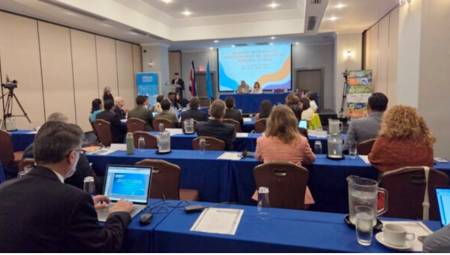 United States. Engineering researchers at the University of Alabama (UA) are part of a national project to find ways to reduce the energy used to heat, cool and ventilate buildings.
United States. Engineering researchers at the University of Alabama (UA) are part of a national project to find ways to reduce the energy used to heat, cool and ventilate buildings.
Dr. Zheng O'Neill, UA assistant professor of mechanical engineering, leads a team developing test standards and control strategies for sensors used to control HVAC in commercial and residential buildings.
The goal is to provide a way for those operating HVAC systems to know that sensors work efficiently by detecting human movement and occupancy to control heating, cooling, and ventilation.
"When we complete the work, we should be able to say that if we use this kind of sensor-driven control strategy, we can achieve HVAC energy savings of at least 30 percent," O'Neill said.
UA received nearly $1.5 million from the U.S. Department of Energy's Advanced Research Projects Agency-Energy, or ARPA-E, through its Saving Energy Nationwide in Structures with Occupancy Recognition program, or Sensor.
Approximately 13 percent of all energy produced in the United States is used to heat, cool, and ventilate buildings, and is largely wasted; it is used when buildings are unoccupied or not fully occupied. The Sensor program supports innovative and highly accurate presence sensors and occupant counters that optimize the building HVAC system while reducing costs and reducing energy use.
Sensor project teams can leverage existing low-cost wireless and electronic communication technologies and could reduce HVAC energy use by 30 percent, while also addressing user cost, privacy, and usability requirements.
The team will investigate various types of occupancy sensors, such as human presence detection, people counting, and carbon dioxide sensors to detect failure rates and the potential for HVAC energy savings in a wide range of real-world applications.
The proposed test protocol and simulation package, which can be used for any sensor-controlled HVAC energy efficiency technology, will be tested and validated in controlled side-by-side lab environments at Delos Well Living Lab and Lab Northwest Laboratory's Homes, and in field trials in four commercial buildings and four residential houses in two climatic zones.
Data Source Provider: University of Alabama.














